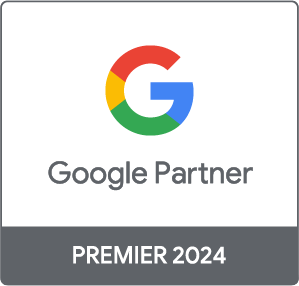Media Practice & Operations Director
The future of digital media: How AI and ad tech will transform an industry
Media Practice & Operations Director
Welcome to the dynamic, ever-evolving world of advertising technology, also known as ad tech, a pivotal aspect of digital marketing that harnesses technology to make advertising more effective, targeted, and measurable. As we navigate through this guide, we’ll explore the evolution of ad tech from its humble beginnings to the sophisticated systems that define today’s digital advertising landscape.
Think of the digital marketing industry as if it were the automobile industry. Initially, cars were simple, robust, and mechanical, much like early internet banner ads that were static and lacked targeting. Over time, cars became more sophisticated with the introduction of electronic systems, sensors, and eventually automation with self-driving vehicles. Similarly, digital marketing has evolved from simple banners to complex programmatic advertising systems, search engine targeting, and paid social placement. These advancements use data to target the right users at the right time, all while respecting user privacy and maximizing return on investment.
Modern cars are now equipped with GPS, artificial intelligence for assisted driving, and even collision avoidance systems, which parallels the use of data and AI in ad tech to optimize campaigns, maximize ROI, and ensure user data security. Just as autonomous vehicles promise to transform mobility, advances in AI and machine learning in ad tech promise to revolutionize how brands engage with their audiences, making advertising more effective, precise, and privacy-conscious.
2024: A pivotal year for ad tech with the omnipresence of AI
As we advance further into the year 2024, which has been pivotal in terms of AI breakthroughs, these developments will play a critical role in the digital marketing landscape, where ad tech will continue to evolve, driven by the need to adapt to privacy regulations and increasing data security demands. This journey mirrors the automotive industry’s shift from gas-powered engines to electric and hybrid models, underscoring a broader movement towards more sustainable and advanced technologies.
The importance of data and platform ownership
In the ad tech world, data and platform ownership is a primary concern. Are you the proprietor of your data, your audiences, and all the time and money you’ve invested in those ad tech platforms? If you change agencies or internalize your activity, will you lose all that crucial information and need to start over again from scratch? Being the owner of your platform ensures the permanence of your investments and establishes the foundation for your future success.
Core components of ad tech
Ad tech systems in digital media can be very large and involve many different components ranging from tracking to placement, bidding, budget management, measurement, and more. In digital media buying specifically, key components like demand-side platforms (DSPs), supply-side platforms (SSPs), and ad exchanges are like the engine, transmission, and wheels of a car—essential for movement and performance. These tools, along with BigQuery, Google Cloud Platform (GCP), Search Ads 360 (SA360), digital out-of-home (DOOH), and advanced bidding algorithms, expand the scope and capability of advertising technologies.
Navigating the challenges of privacy and AI
The past year has marked a significant turning point in ad tech, especially when it comes to privacy and AI. Just as the automotive industry needed to navigate safety and emission standards, we must address privacy regulations such as Law 25, the GDPR, and the CCPA. These regulations necessitate a shift toward more privacy-focused advertising solutions and the dynamic integration of first-party data, all while maintaining full respect for user consent.
AI has increasingly become the cornerstone of every business sector, fundamentally reshaping how we work. Major ad tech platforms like Google Marketing Platform have been integrating AI for years, continually refining their algorithms to enhance performance. This continual improvement is akin to upgrading a Tesla with an auto-driving feature; it transforms not just the efficiency but also the effectiveness of how we get from point A to point B in our digital strategies. This integration of advanced AI pushes ad tech platforms to the top of their game, optimizing campaign outcomes and operational efficiencies.
The critical role of data in ad tech
Data play a critical role and can be compared to a self-driving car’s user database, providing essential insights for ad targeting and personalization. Poor data quality can lead to suboptimal outcomes, often characterized by the phrase “garbage in, garbage out.” The use of AI, advanced algorithms, and data modelling enhances these capabilities with tools like first-party data integration, Vividata, Comscore, Google Insight Finders, and proprietary tools such as Segment Prospector and Delta Opportunity Index, which play pivotal roles in strategic planning.
Future trends in ad tech
As we look towards the future, anticipated trends in ad tech include further advancements in AI and machine learning, which are expected to automate and enhance the intelligence of advertising solutions. These developments promise to improve ad targeting, ROI measurement, and fraud detection, fundamentally changing how advertisers engage with their audiences, much like how electric vehicles are reshaping transportation.
Before you integrate a new ad tech solution into your digital media marketing, make sure you have defined a list of your needs and validated which technological solutions fulfill them, as well as whether they fit within your digital marketing ecosystem.
Don’t hesitate to contact us if you have any questions regarding your ad tech stack and how new solutions could improve your digital media performance.

%20(1)-1.jpg)












